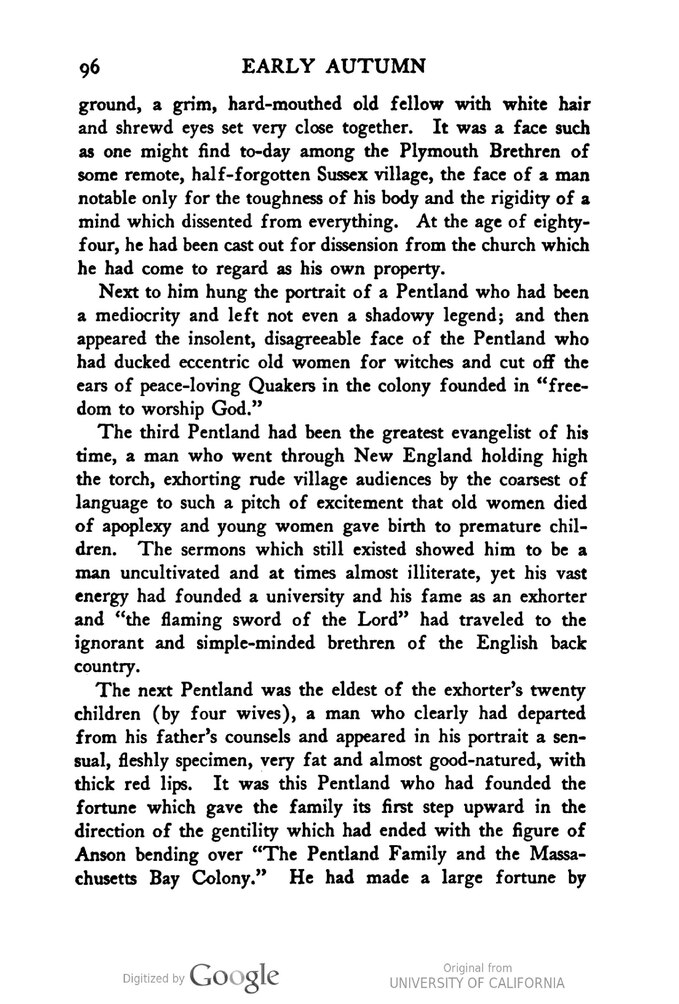ground, a grim, hard-mouthed old fellow with white hair and shrewd eyes set very close together. It was a face such as one might find to-day among the Plymouth Brethren of some remote, half-forgotten Sussex village, the face of a man notable only for the toughness of his body and the rigidity of a mind which dissented from everything. At the age of eighty-four, he had been cast out for dissension from the church which he had come to regard as his own property.
Next to him hung the portrait of a Pentland who had been a mediocrity and left not even a shadowy legend; and then appeared the insolent, disagreeable face of the Pentland who had ducked eccentric old women for witches and cut off the ears of peace-loving Quakers in the colony founded in "freedom to worship God."
The third Pentland had been the greatest evangelist of his time, a man who went through New England holding high the torch, exhorting rude village audiences by the coarsest of language to such a pitch of excitement that old women died of apoplexy and young women gave birth to premature children. The sermons which still existed showed him to be a man uncultivated and at times almost illiterate, yet his vast energy had founded a university and his fame as an exhorter and "the flaming sword of the Lord" had traveled to the ignorant and simple-minded brethren of the English back country.
The next Pentland was the eldest of the exhorter's twenty children (by four wives), a man who clearly had departed from his father's counsels and appeared in his portrait a sensual, fleshly specimen, very fat and almost good-natured, with thick red lips. It was this Pentland who had founded the fortune which gave the family its first step upward in the direction of the gentility which had ended with the figure of Anson bending over "The Pentland Family and the Massachusetts Bay Colony." He had made a large fortune by
